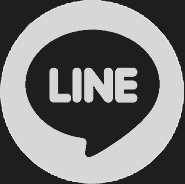|
jieba (戒疤)
Chinese. ‘Precepts scars’. Name of
nine rounded scars or marks, i.e. three rows of three
dots, that are burned onto the head of
Shaolin
monks with
incense sticks
(fig.),
and which represent the nine monastic rules of the Shaolin order. The marks are usually applied by the abbot, and on the heads of those who accept and are
committed to follow the order's regulations. The Chinese
government has in the past banned
the practice, but since 2007 partially
allows it again. The term is almost
homonymous with jieba (结疤), which means ‘to scar’ or ‘to bind by scarring’,
though the first character (结) of the latter expression has a rising tone rather
than a falling tone as in jie (戒). In Vietnam, Buddhist monks may apply
three, six (fig.)
or nine burn marks on the forehead. Different from
monks in
China,
these dots are said to represent the various stages in ones life as a
Buddhist monk, and refer to ones achievement on the path towards
Enlightenment.
There are purportedly three levels and each one is represented by a horizontal row of three
dots.
回
_small.jpg)





|

